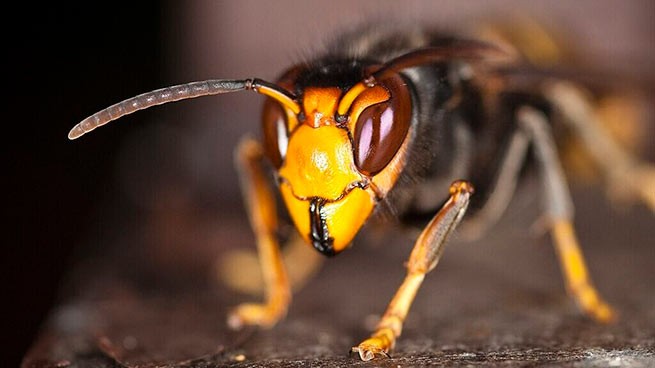The Asian hornet, or Vespa velutina, kills up to 30 bees a day. Danel Solabarrieta
Italian MEPs call on the European Commission to combat Asian wasps that are spreading in some countries EU and kill the bees.
These wasps, native to Southeast Asia, were first spotted in Europe two decades ago. They arrived in France and then spread to Spain, Belgium, the Netherlands, Portugal and Italy, where they have been wreaking havoc in the northern regions of the country since their first appearance in 2012.
Asian wasp – “voracious predator” capable of killing up to 30 bees a day, said MEP Salvatore De Meo in an interview with the newspaper Il Messaggero. “Since 2004, this has led to a significant decline in bee populations in some EU countries.”, – he said. Bees are vital to honey production and maintaining a healthy ecosystem.
Vespa velutina, the scientific name of the species, is believed to have arrived in Europe through the port of Bordeaux in 2004 in a container of ceramics imported from China. The Guardian reports that these invaders, “free riders” from China, costing the French economy an estimated €30.8 million a year, and in Portugal the insects have caused honey production to fall by 35% in recent years.
In Italy, the insects were first discovered in Liguria and then spread to Piedmont, Tuscany and, more recently, Emilia-Romagna and Veneto. It is unclear how much the Asian wasp has affected the country’s honey production, but losses in Liguria are estimated at 50% and beekeepers in Tuscany and Veneto are sounding the alarm.
Asian Hornet or Vespa Velutina catches a honey bee in Slo Mo HD video
Michele Meridio, president of the Veneto beekeepers’ association, says the Asian hornet is different from the oriental wasp, or Vespa orientalis, which infests southern Italy. “The Oriental wasp may attack one hive, while the Asian wasp attacks several hives at the same time, – he said. – They kill bees at such an incredible rate – dismembering them and returning the remains to their nests to feed their offspring – that the bees no longer leave the hives.”







More Stories
Thodoris Kolidas explains the phenomenon "black sky" on Good Friday
Black swan in the Evros river delta
The weather will turn bad on Good Friday